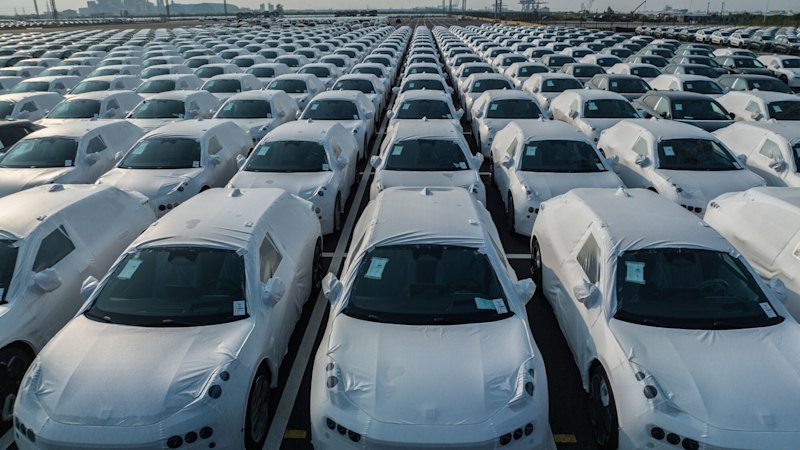
UPDATE: New reports confirm that China’s grip on the electric vehicle (EV) market may be loosening, as doubts emerge from the World Power Battery Conference in Sichuan. This pivotal moment could signal a shift in the global race for EV supremacy, with Western nations poised to capitalize on China’s faltering ambitions.
During the conference earlier this month, industry leaders voiced concerns about China’s ability to advance to solid-state batteries, a technology projected to revolutionize EV performance. Wu Zhixin, vice chairman of China’s Solid-State Battery Platform, warned that researchers are nowhere near mastering the complex metallurgy required for commercial production. “Predictions about solid-state batteries are like fortune-telling,” he stated, suggesting these innovations may not be viable until the mid-2030s.
Meanwhile, optimism buzzed at the Battery Show North America 2025 in Detroit, where 1,350 exhibitors showcased advancements in battery technology. The mood starkly contrasted with the uncertainty in China, as companies like Ford and GM, in collaboration with Korea’s LG, prepare to introduce new lithium manganese-rich (LMR) batteries by 2028. These batteries promise to enhance EV driving ranges beyond 400 miles while reducing reliance on costly materials.
The stakes are high for China, which has invested staggering amounts into outdated technologies and is facing an impending market oversaturation. Last year, China’s battery production capacity reached 1.17 terawatt hours, exceeding global demand. Authorities aim for an ambitious 6.3 terawatt hours by the end of the decade, but experts warn this could lead to a monumental overcapacity disaster.
Innovation is surging in the West, with companies like UK-based Ilika pioneering solid-state technology that could significantly lower battery pack costs by £2,500 while reducing vehicle weight by 100 kilograms. The American firm Amprius Technologies is also making strides, targeting an energy density of 500 watt-hours per kilogram, which could halve battery weight and alleviate range anxiety.
“There is far too much doom and gloom about EVs and batteries in this country. We have really got our act together,” said Dr. Ben Walsh from the UK’s Battery Innovation Programme, highlighting the positive trajectory of Western innovation.
As China grapples with the challenges of transitioning to solid-state batteries, its past dominance in the lithium-ion market is being questioned. The Communist Party’s aggressive industrial policies, designed to monopolize global supply chains, are now under scrutiny as the West prepares to reclaim ground. Experts like George Magnus from Oxford University’s China Centre emphasize that China’s massive investments might not yield the anticipated returns.
The urgency for the West is clear: avoid succumbing to defeatism and continue to pursue innovation in the electric vehicle sector. The continuous evolution of battery technology represents a massive opportunity for nations to attract investment and expertise. As the global landscape shifts, all eyes will be on how quickly and effectively the West can respond to this critical challenge in the electric vehicle race.
With the situation rapidly evolving, industry watchers must stay alert for updates on developments from both sides of the Pacific. The contest for EV supremacy is far from over, and the next few years could define the future of transportation.






